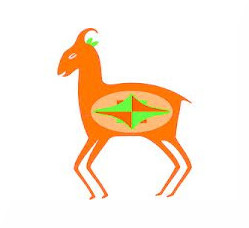I am not an atheist, I genuinely believe that God exists and he is evil, like a toddler who fries little ants with a lens.
I’ve always said (jokingly since I’m an atheist) that Christians got it mixed up and thought Satan was God, so they’ve really been worshiping Satan all this time. They don’t want to admit they’re wrong about him being good, so they make up all kinds of excuses for all the horrible things he does. That’s why they were totally conditioned and ready to do the same with trump.
Just a gentle reminder that there are very many more Christians in the world that aren’t American and certainly don’t support Trump. Or even care that much about American politics.
LOL there aren’t people in the rest of the world. America is everything and everything is America. If you don’t agree will bring “Freedom” to you.
Yes. It’s Dystheism.
Some forms of Gnosticism assert this.
Gnosticism is a broad group of early Christian cults that are influenced by earlier religions, so it’s not a monolith and I don’t want to paint them with the same brush, but:
Some of them include the idea that our souls (our consciousness) are from a realm or being of light, but the material/physical world was constructed by the demiurge (yahweh of the old testament) and has trapped us here.
According to this idea, Jesus is actually from that divinity beyond Yahweh, and is not the son of God. So Jesus’ sacrifice was not just the crucifixion, but embodiment itself. He brings us knowledge (gnosis, thus gnosticism) of our true divinity and through that knowledge, salvation from this material prison.
There’s an amazing book about all this, called, The Gnostic Religion, by the philosopher Hans Jonas.
There’s an amazing book about all this, called, The Gnostic Religion, by the philosopher Hans Jonas.
People should be aware that this book is severely out of date.
In 1998 the book Rethinking Gnosticism started a process of self-reflection over past work in scholarship and people started to realize they had their head up their asses with tautological thinking around Gnosticism based on significant propaganda from the church.
Here’s Princeton’s Elaine Paigels (author of The Gnostic Gospels) on the subject from an email debate years after this:
The earliest editors of “Gnostic” texts thought that they were dualistic, escapist, nihilistic, involving “esoteric ideas about aeons and demiurges,” as you yourself write. As my former teacher at Harvard, Krister Stendhal, said to me recently about these texts, “we just thought these were weird.” But can you point to any evidence of such “esoteric ideas” in Thomas? Anything about “aeons and demiurges”? Those first editors, not finding such evidence, assumed that this just goes to show how sneaky heretics are-they do not say what they mean. So when they found no evidence for such nihilism or dualism-on the contrary, the Gospel of Thomas speaks continually of God as the One good “Father of all”-they just read these into the text. Some scholars, usually those not very familiar with these sources, still do. So first let’s talk about “Gnosticism”-and what I used to (but no longer) call “Gnostic Gospels.” I have to take responsibility for part of the misunderstanding. Having been taught that these texts were “Gnostic,” I just accepted it, and even coined the term “Gnostic gospels,” which became the title of my book. I agree with you that we have no evidence for what we call “Gnosticism” from the first century, and have learned from our colleagues that what we thought about “Gnosticism” has virtually nothing to do with a text like the Gospel of Thomas-or, for that matter, with the New Testament Gospel of John which our teachers said also showed “Gnostic influences.”
The history of what was actually going on and how the ideas developed is pretty interesting to follow.
The long and short is you had proto-Gnostic ideas like found in Thomas which introduced duality as a solution to the Epicurean argument that naturalist origins of life meant that there was no afterlife. Essentially, even if the world was the product of Lucretius’s evolution and not intelligent design, as long as eventually that physical world would be recreated in non-physical form, the curse of a soul depending on a body would be broken. It suggests that we already are in that copy.
The problem was that by the second century Epicureanism was falling from favor and there was a resurgence of Platonist ideals, where for Plato the perfect form was an immaterial ‘form’ followed by an imperfect physical version and worst of all a copy of the physical. Through that lens, the original proto-Gnostic concept became that we were in the least worthwhile form of existence.
So in parallel to the rise of Neoplatonism you see things like Valentinian Gnosticism emerge which takes the proto-Gnostic recreator of a naturalist original world and flips it to the corrupter of a perfect world of forms. It goes from agent of salvation saving us from death due to dependence on physical bodies to a being that trapped us in physical form.
This debate and conversation goes all the way back to 1 Corinthians 15 where you can see Paul discussing the difference between a physical body and a spiritual one, and the claim that it’s physical first and spiritual second, not the other way around. (And indeed, that was the early heretical point of view, but where it differed from Paul was the idea that we were already in the second version and he was arguing we were still in the first.)
So you are correct that certain later groups previously lumped together as ‘Gnostics’ believed there was a version of Plato’s demiurge that corrupted pure forms into corrupted physical embodiments, and it’s great you are aware it’s not a monolith - but people should have a heads up if they start following up on your source that views on the subject changed dramatically around the start of the 21st century and are still evolving.
the term i always heard was maltheism. reading the other comments though, i’m surprised how many other terms there are for this.
fun fact: renowned mathematician Paul Erdős referred to God as the SF, or Supreme Fascist, who kept all the best mathematical proofs to himself.






